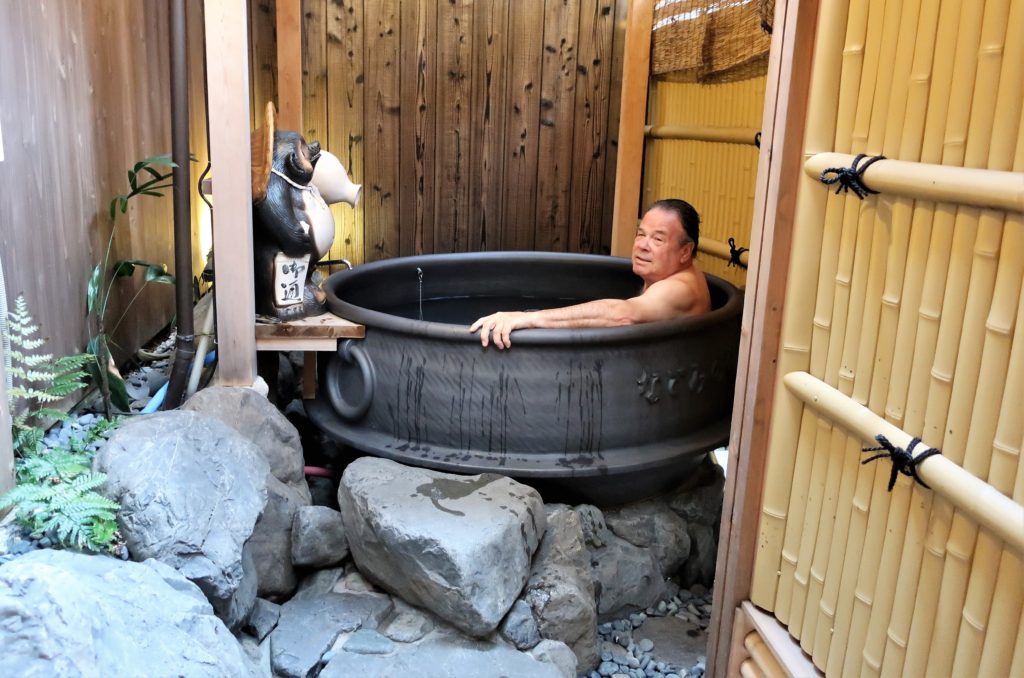From Osaka it’s a brief train ride to Kyoto.
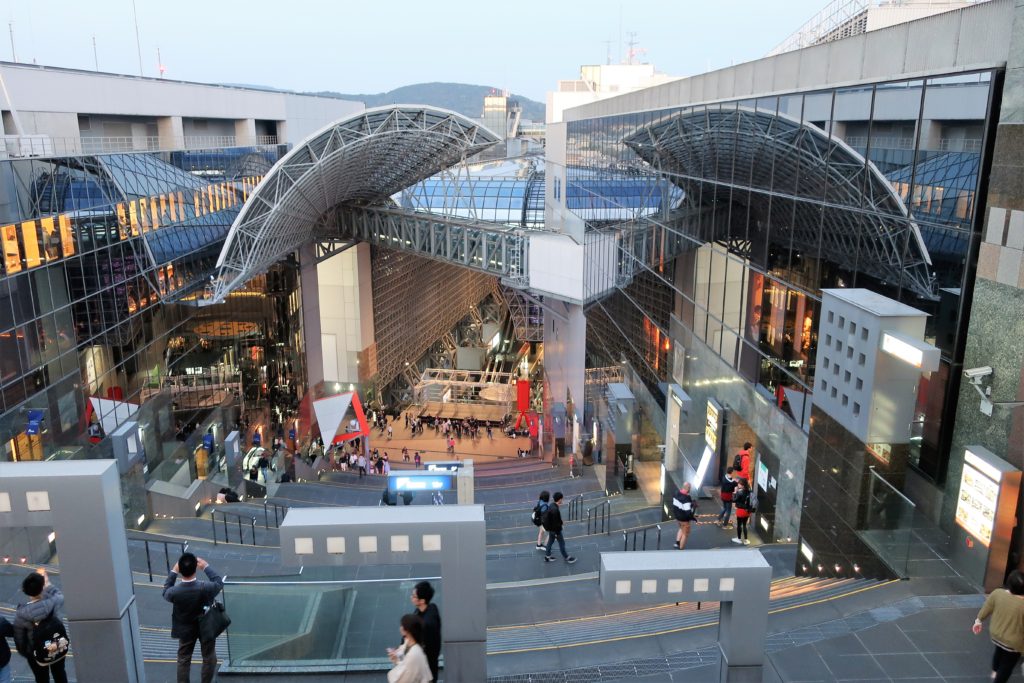
Kyoto Station is humming with activity. It’s a real people place.
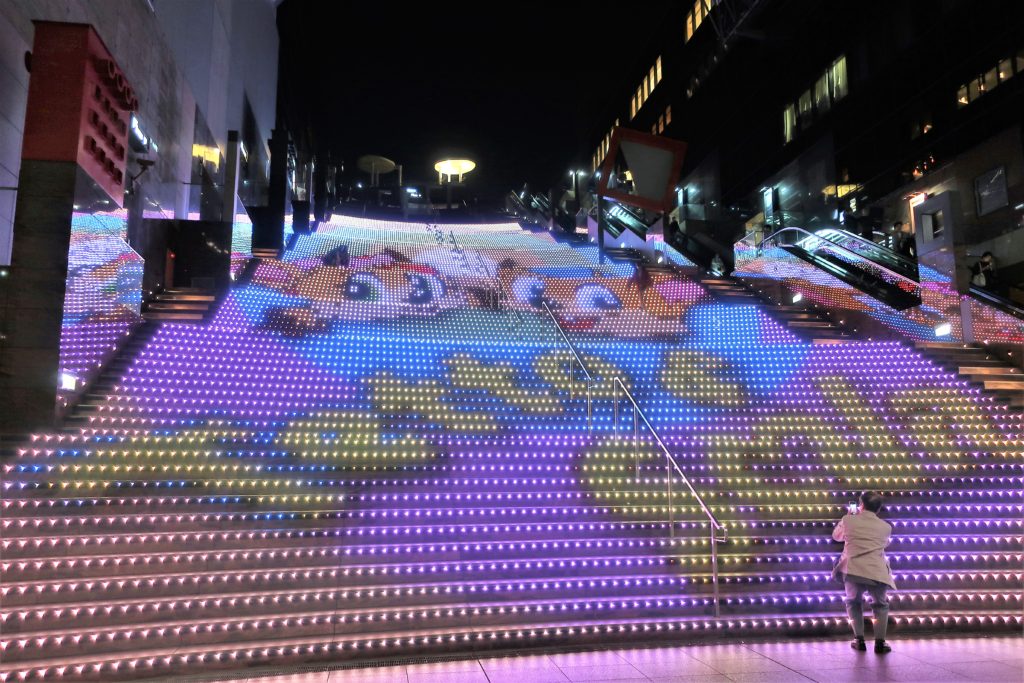
Kyoto, the former Imperial capital of Japan for more than a thousand years, is one of Japan’s most historic cities.
The route to our lodgings takes us past this massive temple, the Higashi-hongan-ji, twice a day.
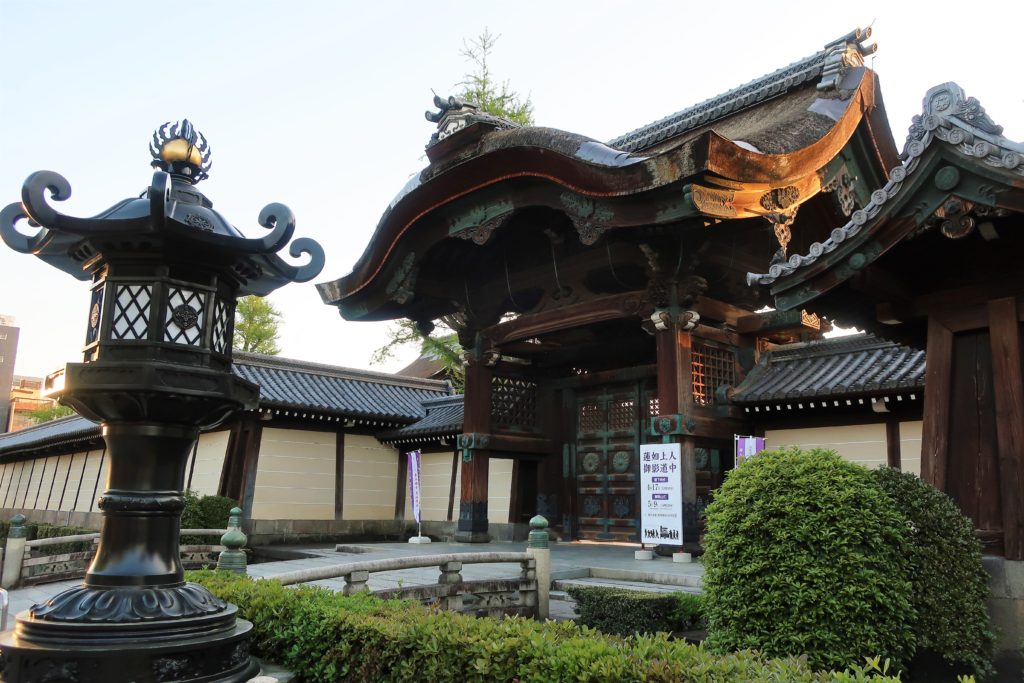
This chart in a chopstick store shows how to measure for your correct size. Who knew chopsticks had a size?
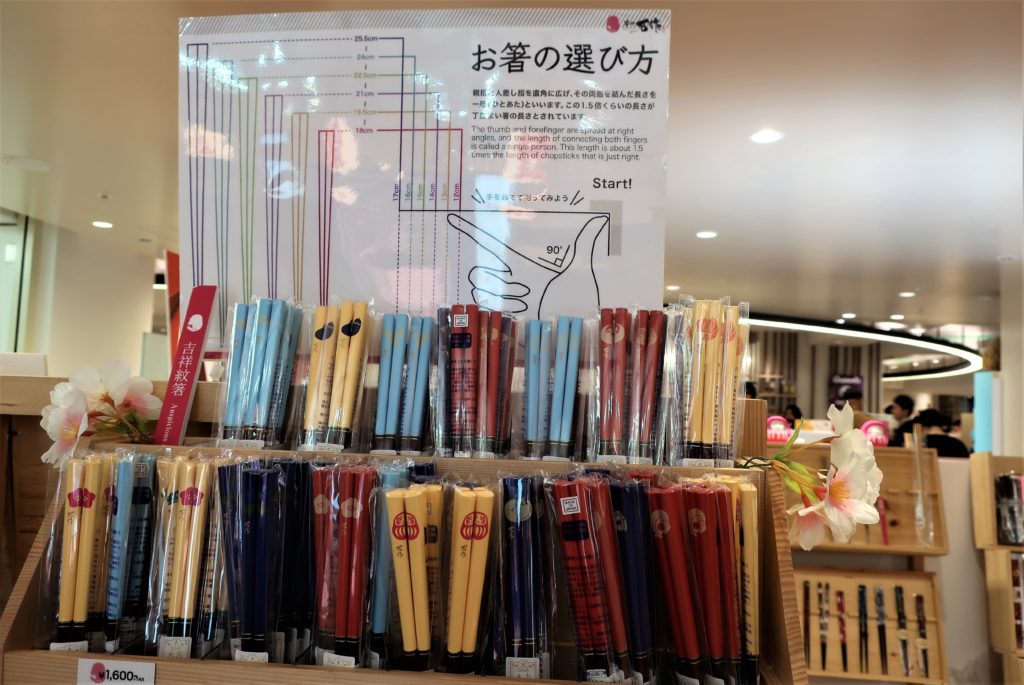
We spend an afternoon at the Fushimi Inari temple.
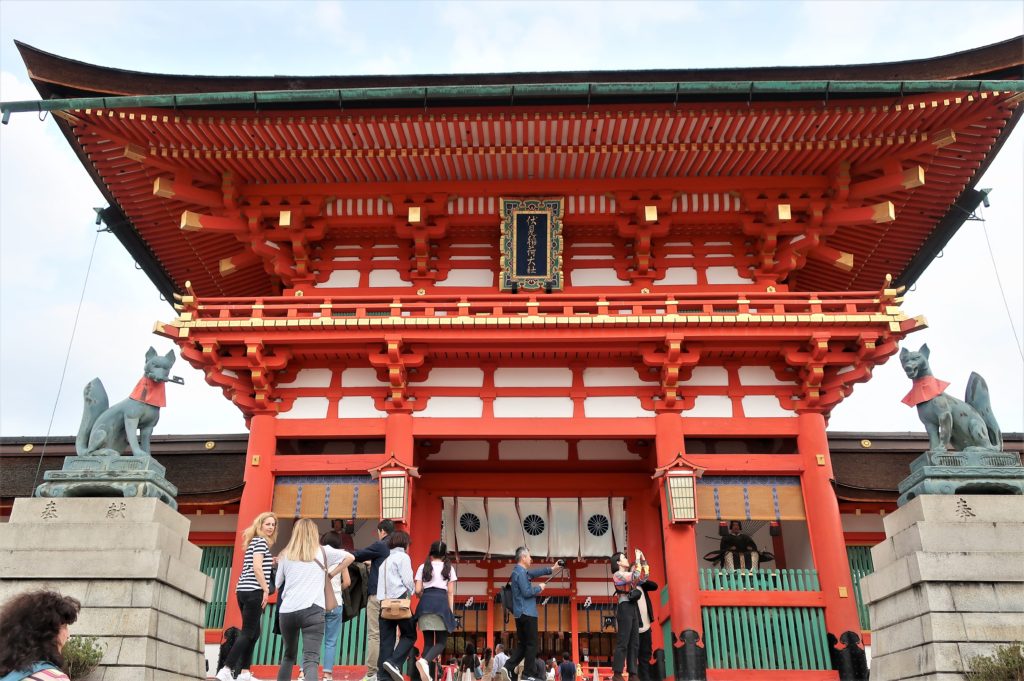
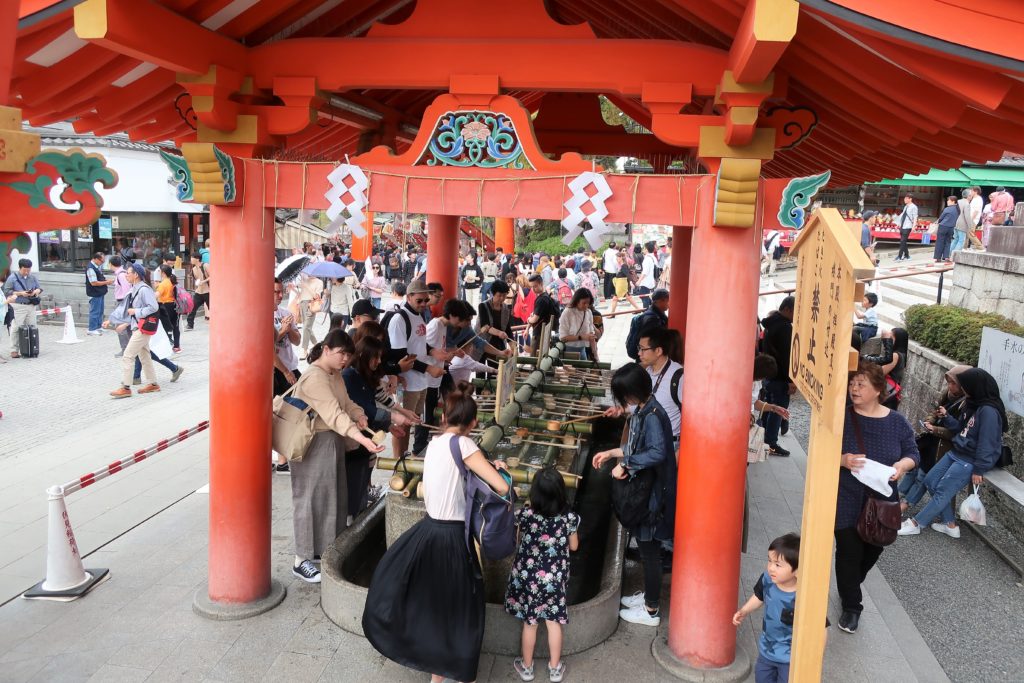
Like many temples, there are a lot of votive wishes being posted.
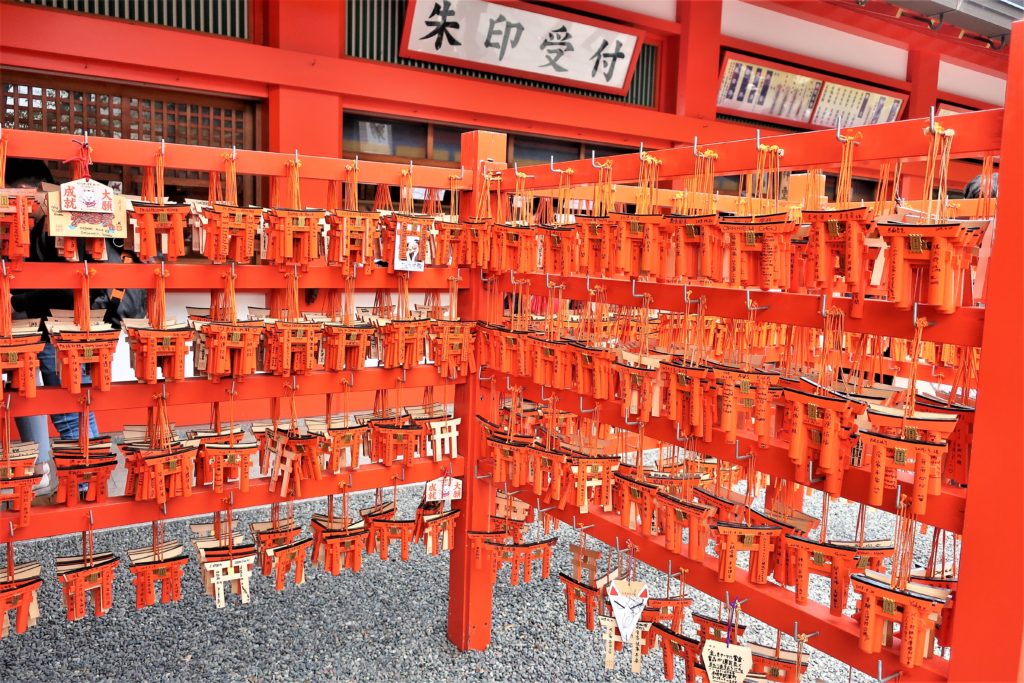
Notice these votive wishes in the shape of a fox head.
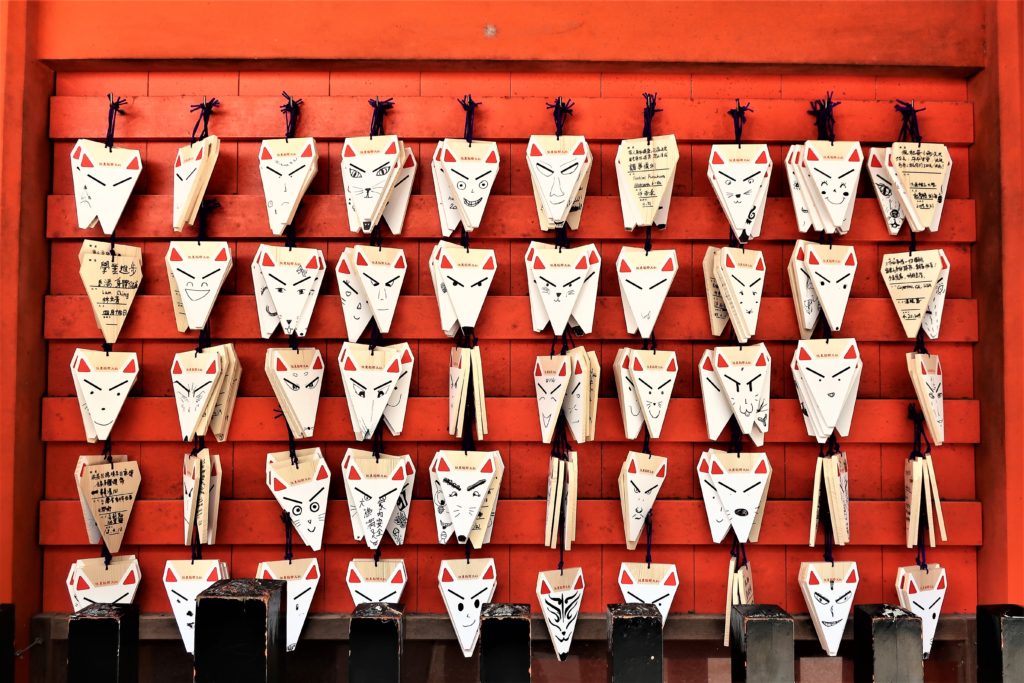
Foxes play a big part in the mythology of this particular temple. There are stone foxes everywhere.
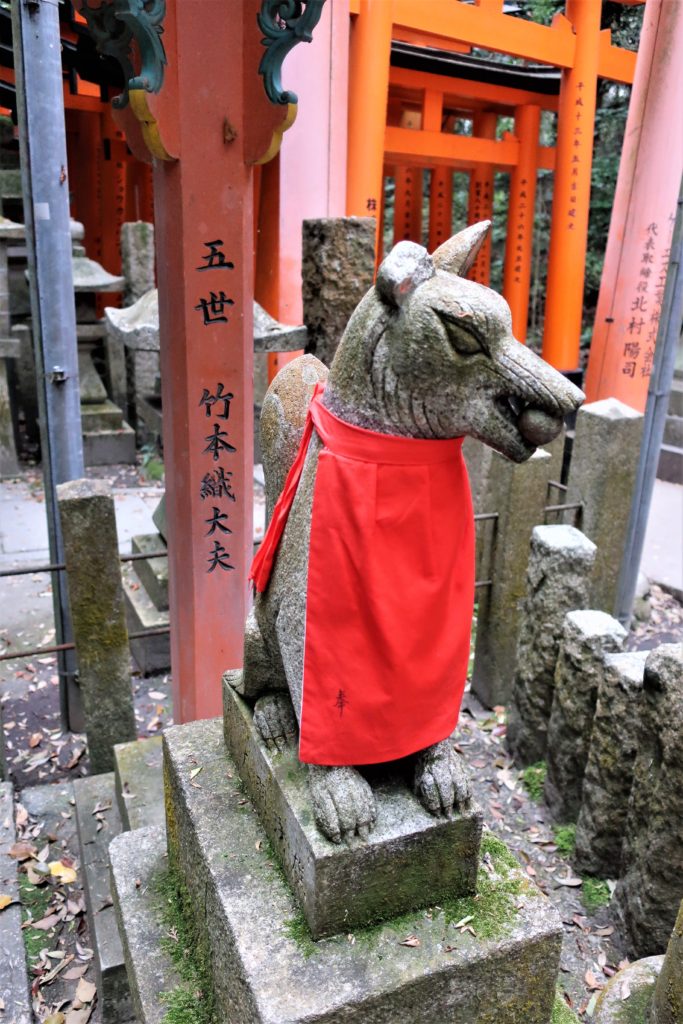
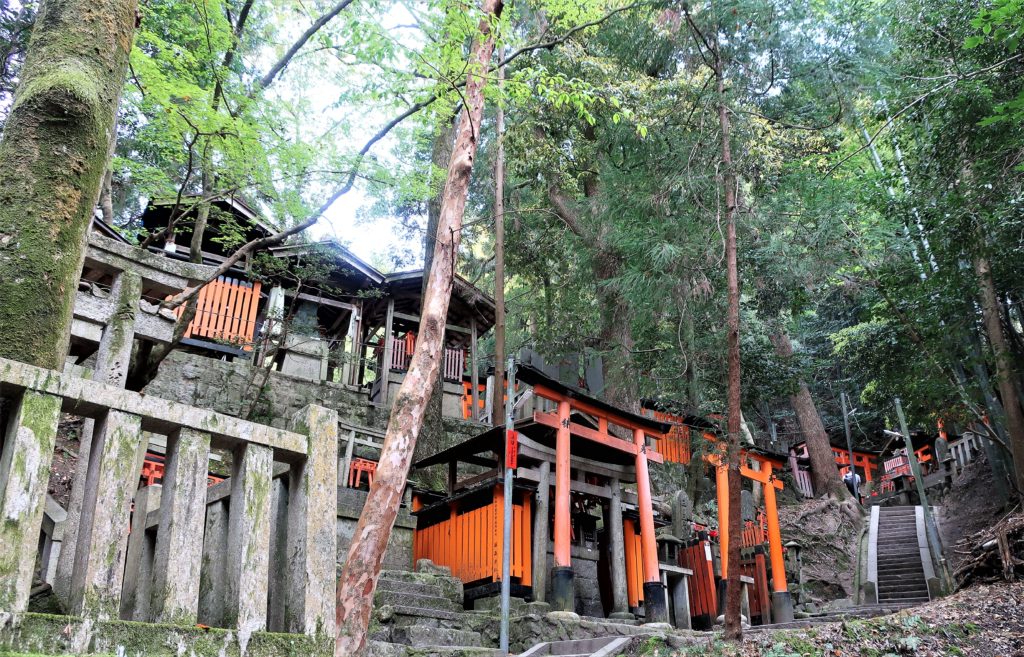
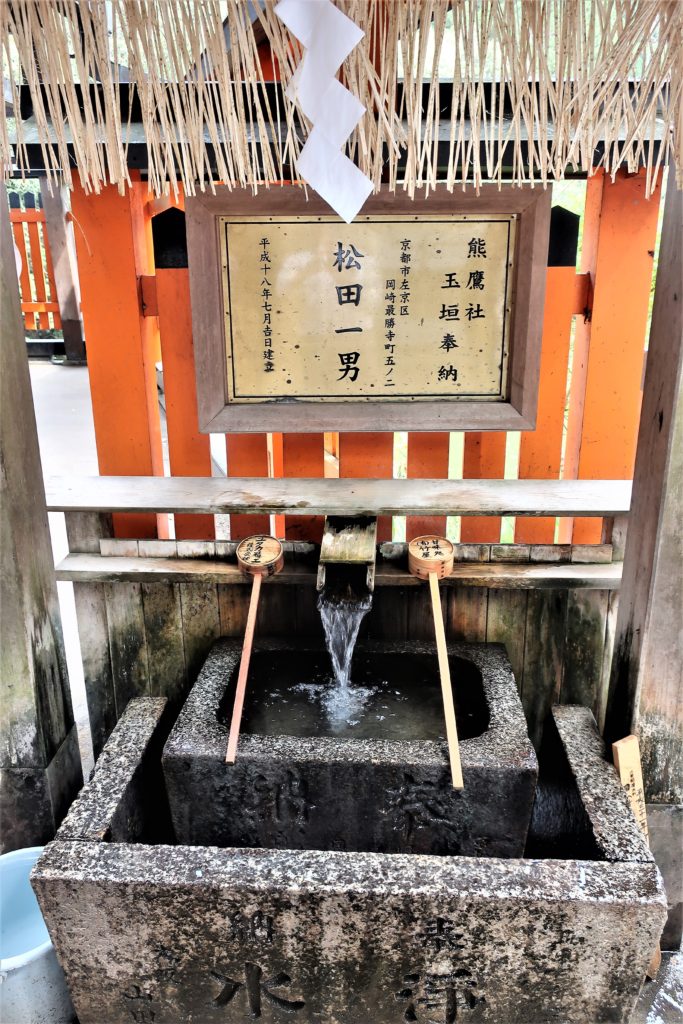
Fushimi Inari is famous for its hundreds thousands of torii, or gates.
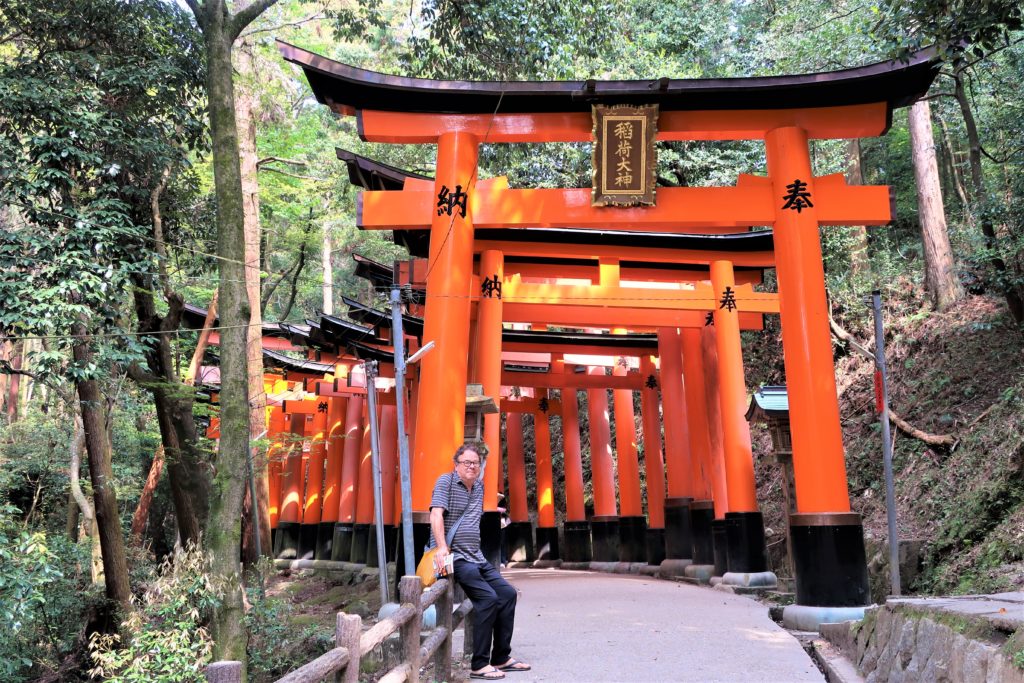
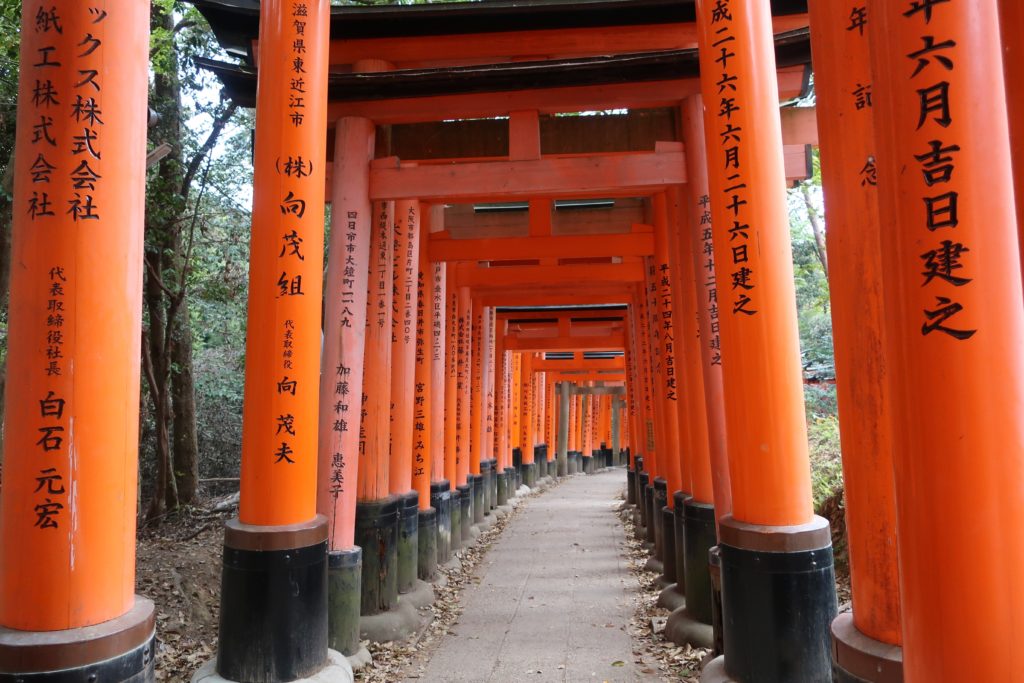
These remind us of Christo‘s 2005 installation, The Gates, in New York City. Not really surprising, because as it turns out, Christo’s work was inspired by this very temple.
In the evening, we return through town. Everywhere in urban Japan you see pachinko parlours.
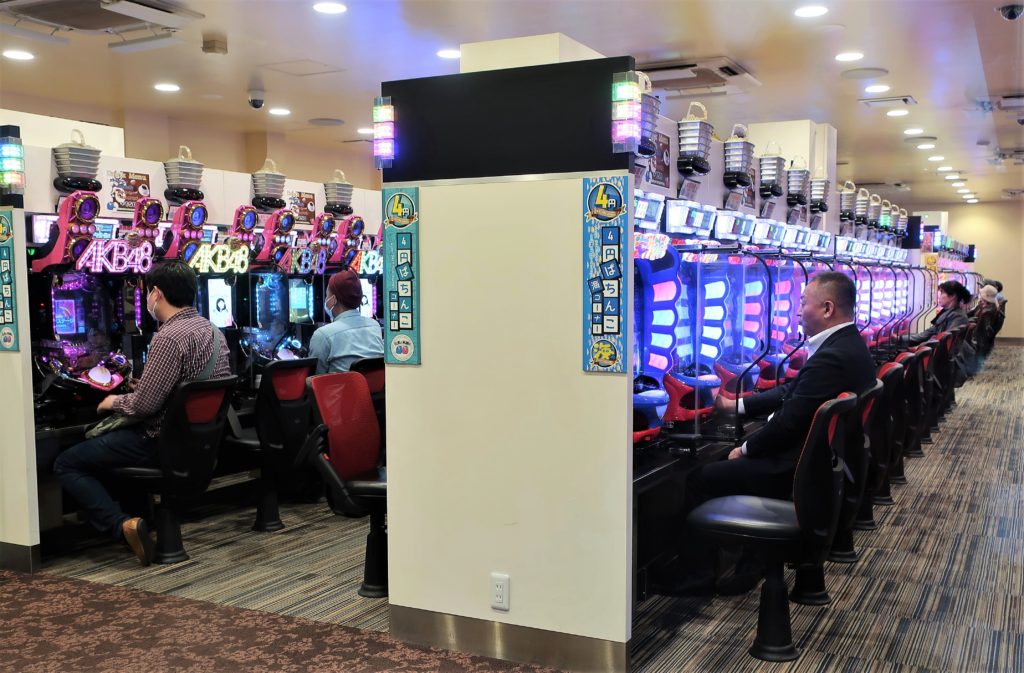
People sit here at all hours of the day. The noise is deafening. Apparently, the average sound level reaches 92 decibels, about the same as standing under a passing commuter train.
In contrast to this infernal din, the norm in Japan is to keep quiet and avoid unnecessary noise.
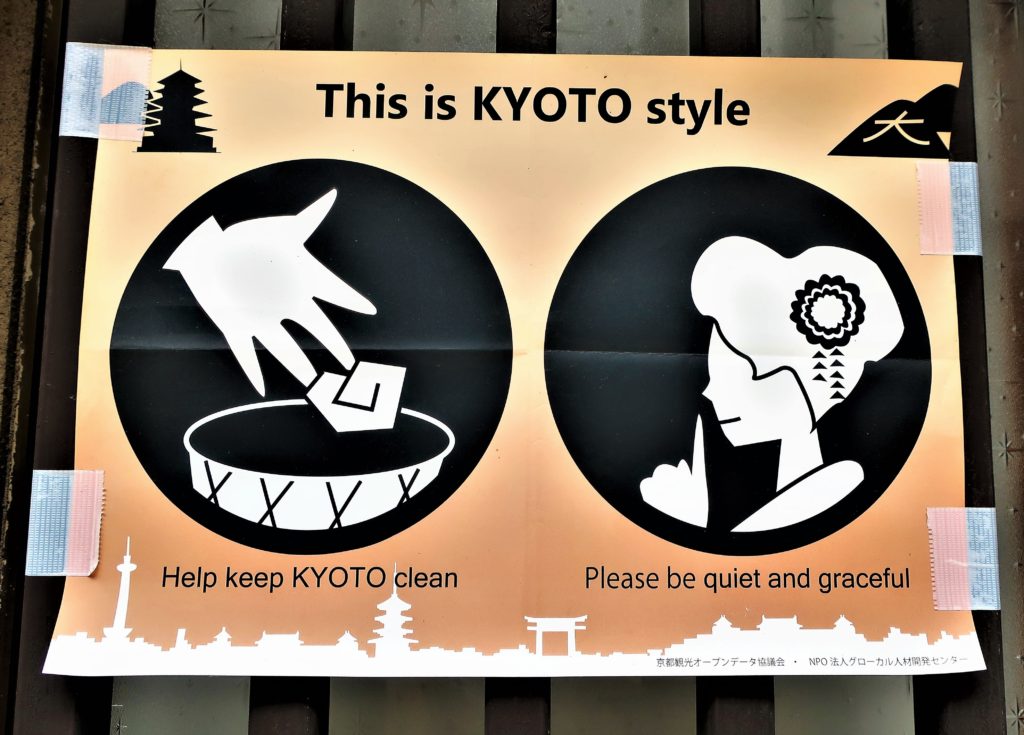
This is our kind of place. It’s clean. And quiet.
Sight or Insight of the Day – Kyoto
In Kyoto, we stay in a ryokan, that is, a traditional Japanese-style inn.
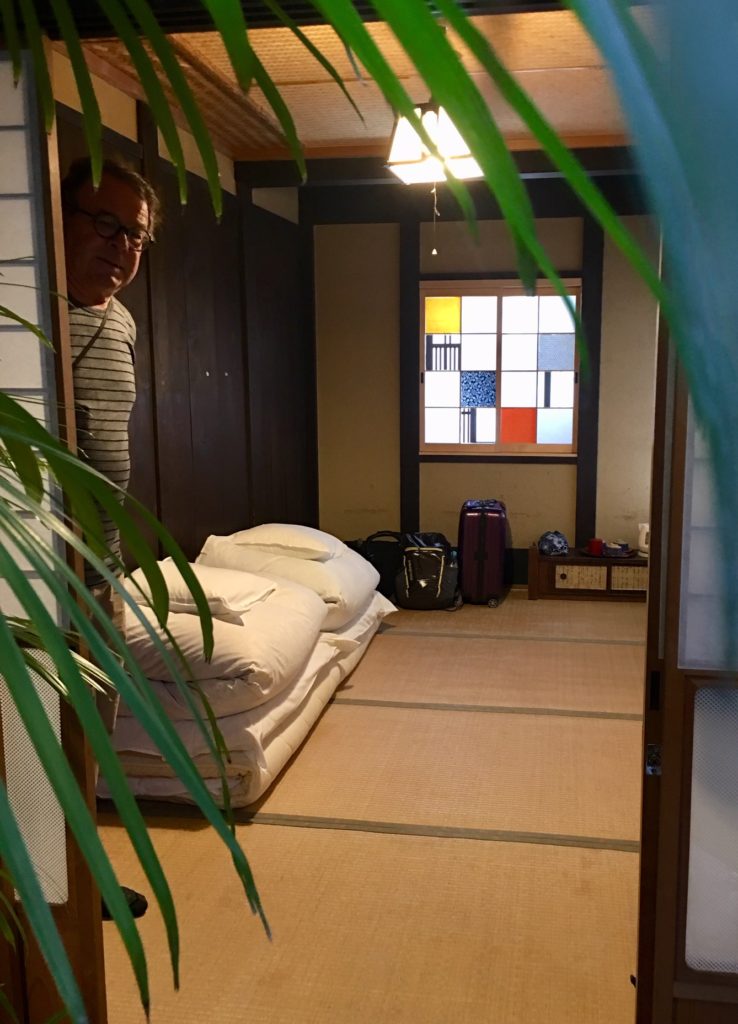
There’s a small garden outside our door.
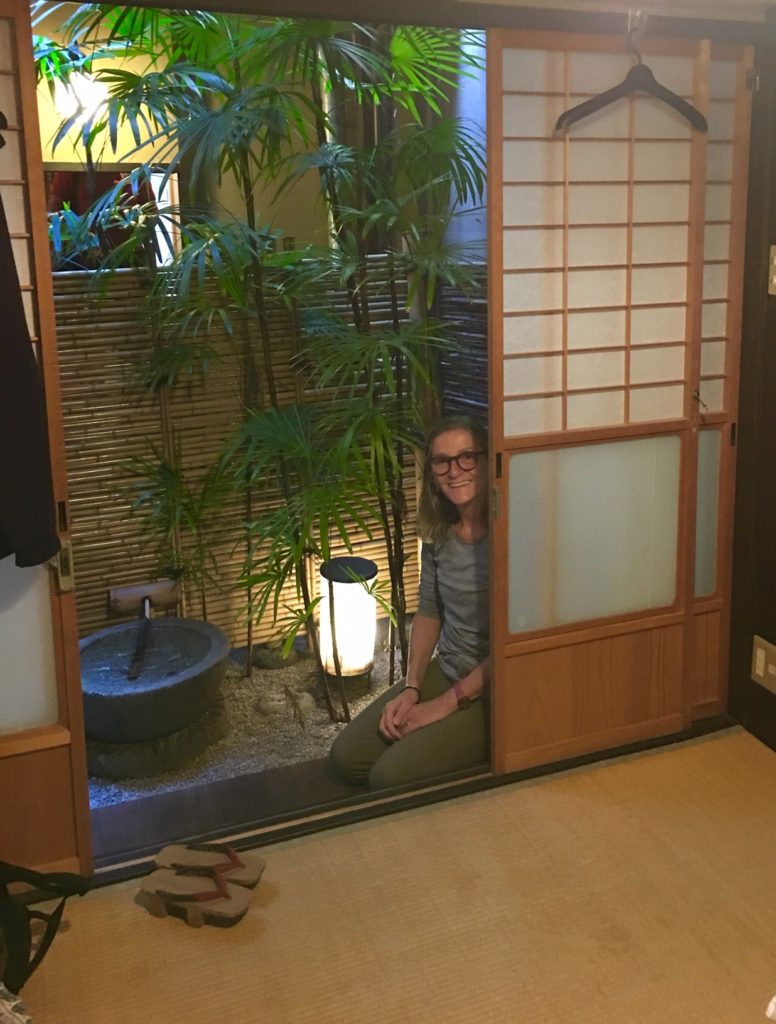
And of course we have a hot bath.
